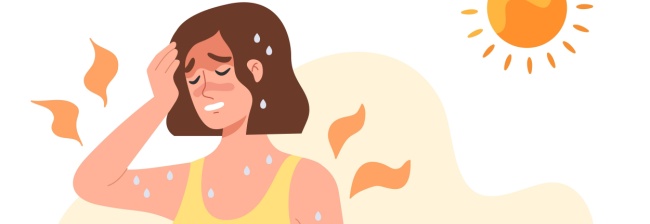These materials were developed by the Centers for Disease Control and Prevention (CDC). The National Association of Community Health Centers, through a U.S. Department of Health and Human Services (HHS) award, solicited and categorized feedback from community health center clinicians, operations staff, and administrative personnel to inform the refinement of these materials and establish a centralized location for community health centers to access the final materials.
Overview
Hot days can harm physical and mental health. While all people can have health harms from heat, some people who health centers serve may be more at risk, including:
- infants and children,
- pregnant people,
- adults over age 65,
- people with disabilities,
- people with mental health conditions,
- people with chronic health conditions,
- people with substance-use disorders,
- people who lack housing and/or quality housing,
- people who lack access to cooling,
- people who are socially isolated,
- people who breathe polluted air,
- workers (especially outdoor workers),
- those who engage in strenuous outdoor activities including athletes.
Check out these new resources by clicking on the links below.
CDC’s HeatRisk Dashboard allows people to access heat and health information in an easy-to-use, mobile-friendly interface. People can access location-specific information using CDC and NOAA’s newly released HeatRisk forecast tool alongside protective health actions they can take. The dashboard links to the new Clinician Heat and Health Guidance and includes additional information related to heat, air quality, and health.
Refer to the CDC Heat and Health overview above to begin protecting patients from hot weather, or click the following links below for specific clinical guidance to support your conversations with patients.

